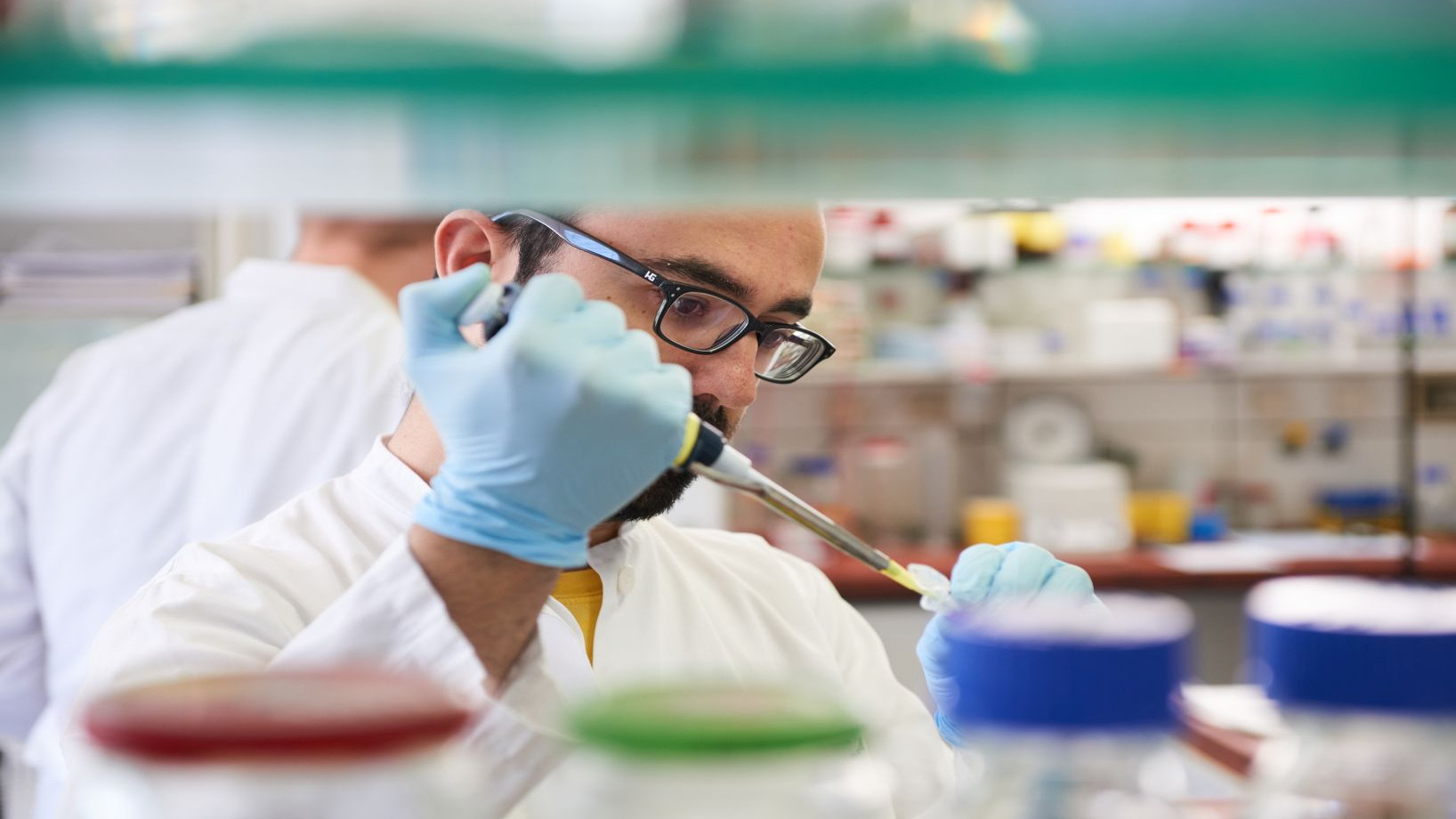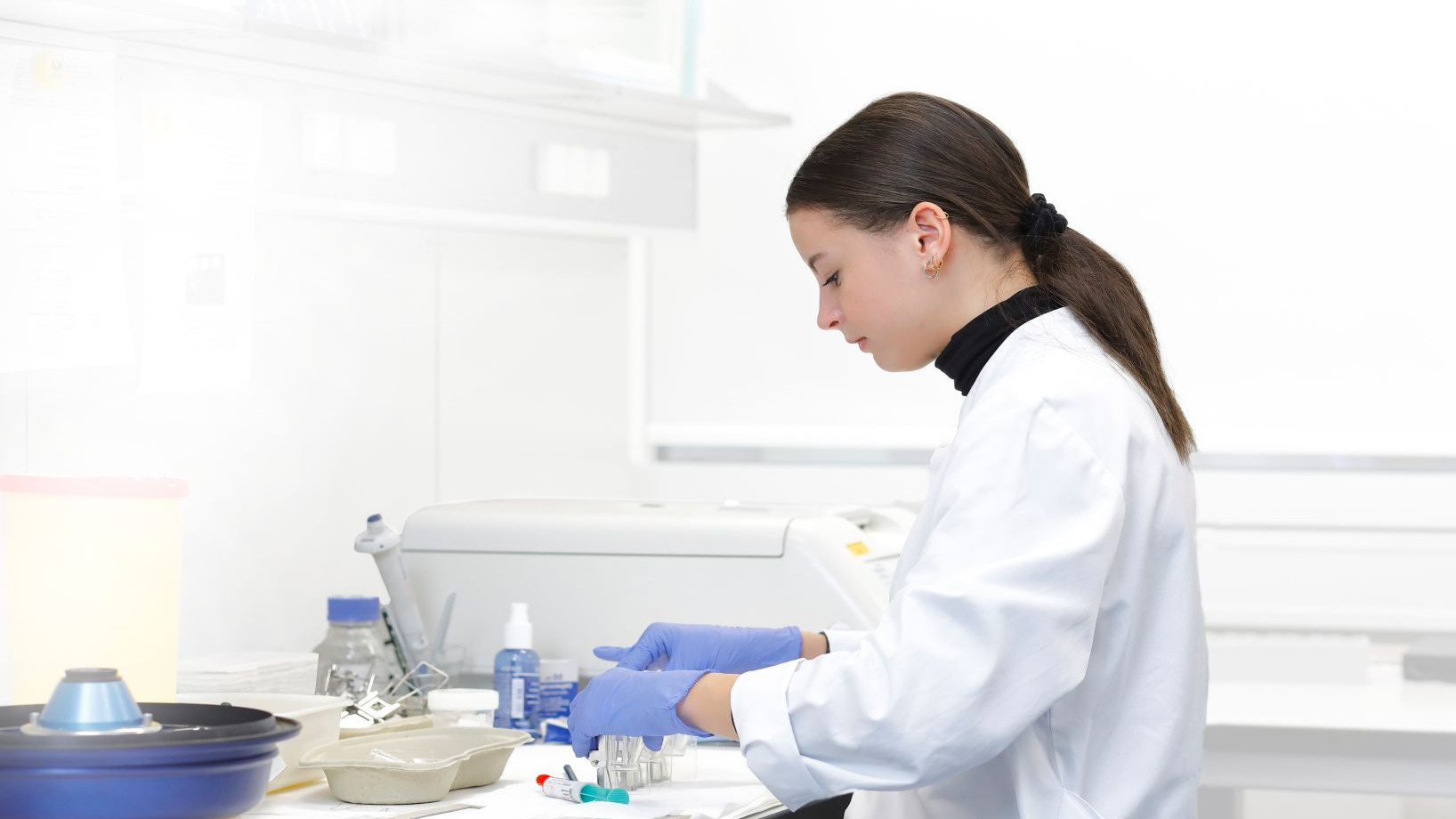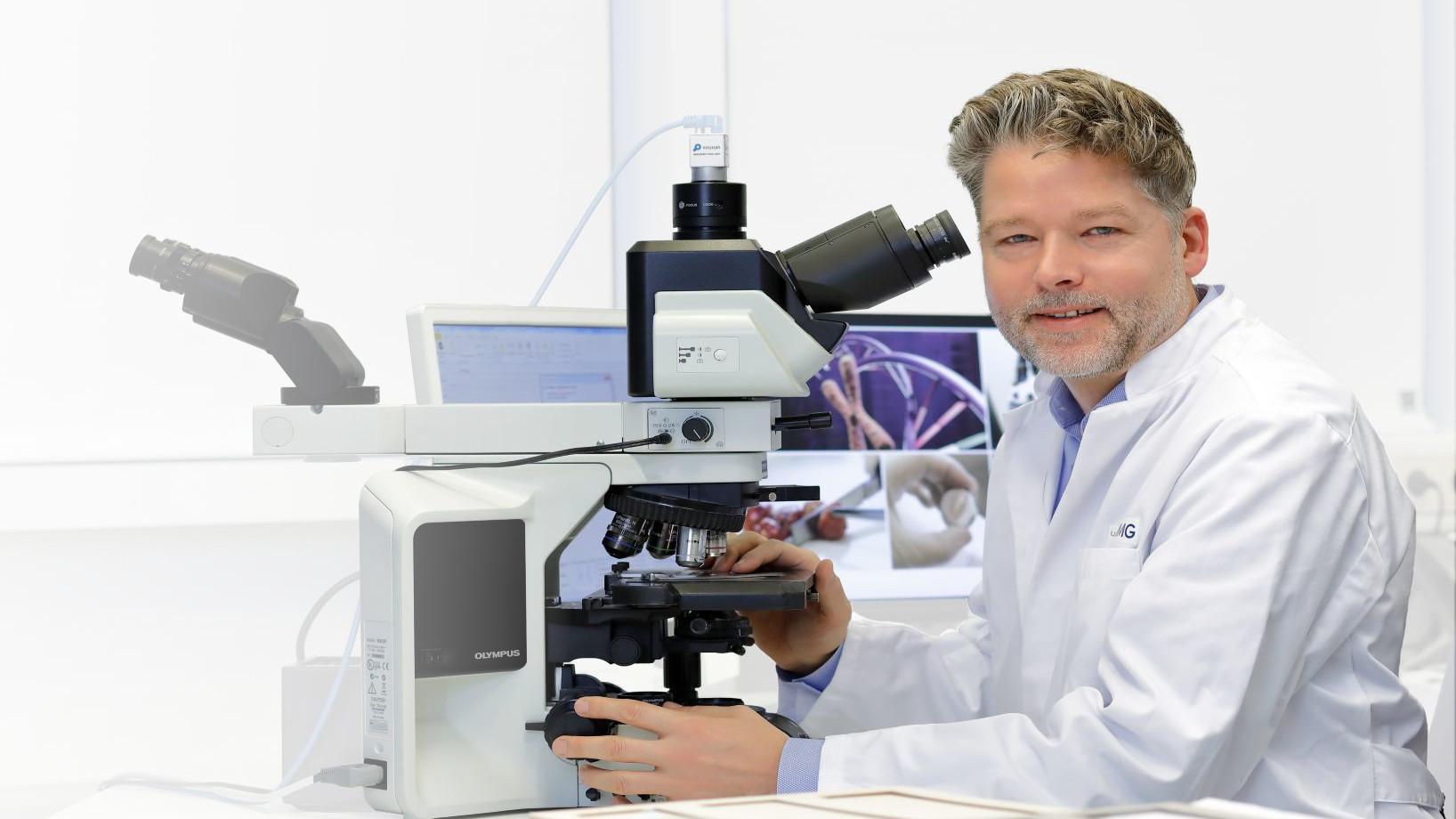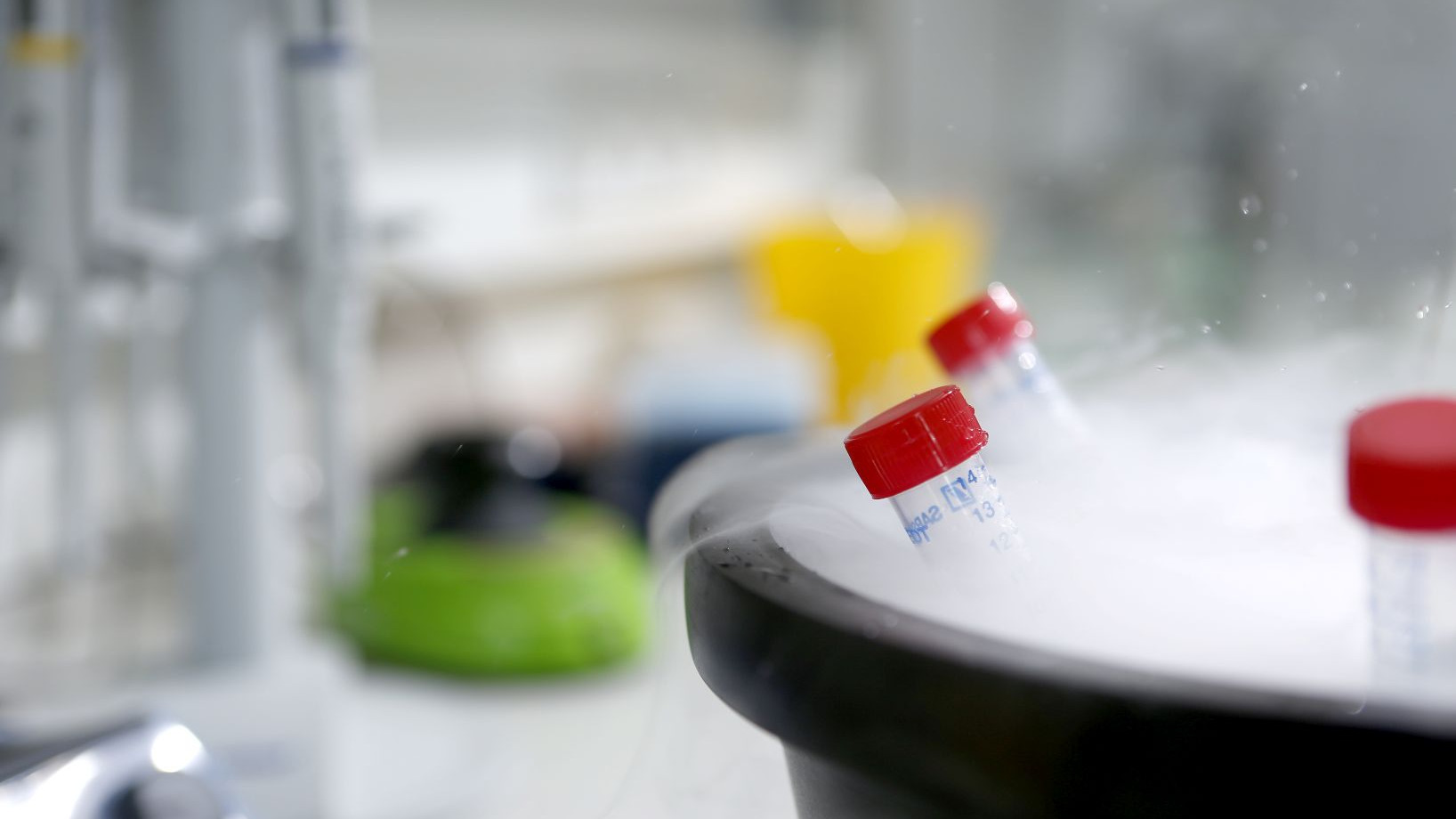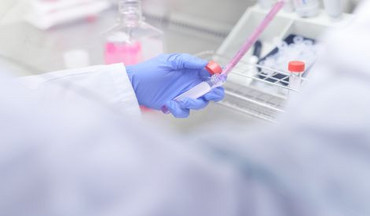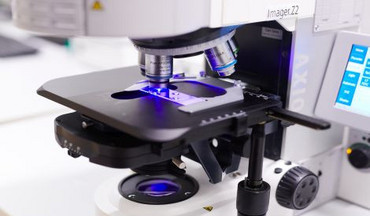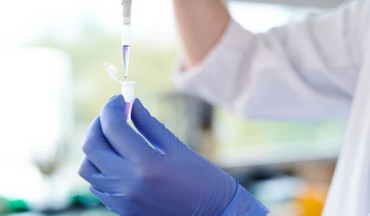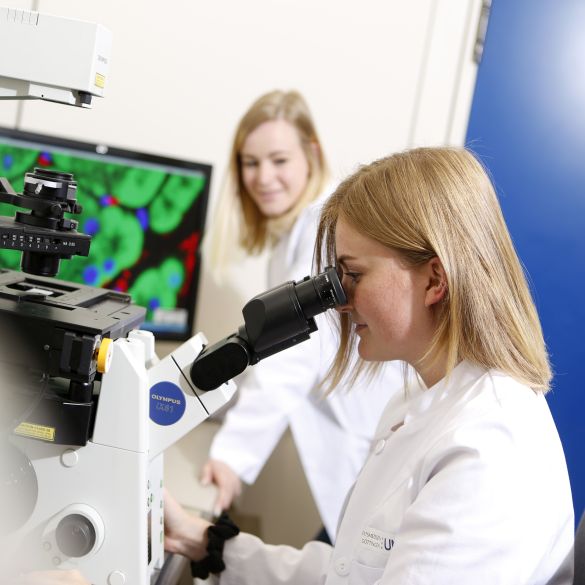Göttingen Comprehensive Cancer Center
Applying tomorrow’s chances today
In order to research cancer, its causes, and - above all - new treatment ideas, clinical and biomedical researchers work hand in hand at the Göttingen Comprehensive Cancer Center. A special focus lies on translational research, where scientists use modern research methods to transfer results from fundamental biomedical research to clinical practice.
We closely cooperate with many institutions, for example our biobank, the institute for pathology and the UMG Study Center. Additionally, the Göttingen Comprehensive Cancer Center is part of several (inter-)national cooperative projects, i.e. the International Cancer Genome Consortium [German].
Young researchers receive special support at the Göttingen Comprehensive Cancer Center. The Max-Eder-Young-Working-Groups-Programme of the German Cancer Aid [German] currently sponsors three working groups at the Cancer Center.
These diverse research activities allow us to offer new and innovative therapy concepts to patients with different cancers as part of clinical trials. A list of all our publications is available in PubMed, the database of the National Library of Medicine (USA).
You can find more information on research focus areas at the University Medical Center Göttingen here.
You may also be interested in
